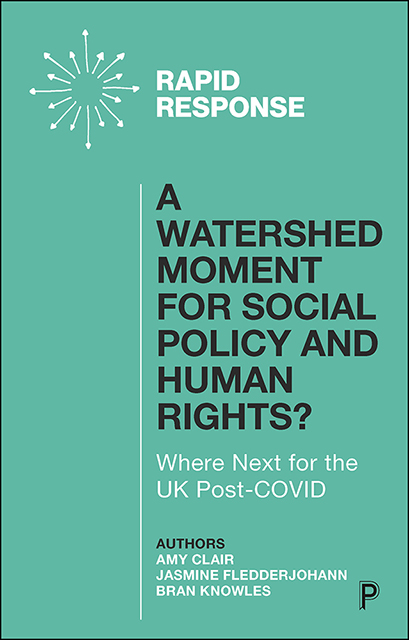3 - The right to food
Published online by Cambridge University Press: 21 April 2023
Summary
The right to food is a key right enshrined in Article 25 of the UDHR. Unarguably, food is a basic need for human health and survival. However, the significance of food extends well beyond this; it is essential for ensuring that people can live with dignity, and is intimately linked to the fulfilment of other important human rights. This reality is well-captured in CESCR General Comment 12, which clarifies:
the right to adequate food is indivisibly linked to the inherent dignity of the human person and is indispensable for the fulfilment of other human rights enshrined in the International Bill of Human Rights. It is also inseparable from social justice, requiring the adoption of appropriate economic, environmental and social policies, at both the national and international levels, oriented to the eradication of poverty and the fulfilment of all human rights for all.
(UN Economic and Social Council, 1999 p. 2)The Comment emphasises the right to food is not simply a matter of meeting minimum caloric needs; food must be healthy, safe, diverse, and culturally acceptable. Meeting these requirements must be sustained over time; sporadic access to food does not adequately fulfil this right. Accessibility includes not only physical but also economic access to food. ICESCR signatory states – the UK included – have signalled their commitment to these principles. As with other human rights, states have a legal obligation to respect, protect, and fulfil the right to food, including through implementation of social programmes which directly and/or indirectly facilitate access. While realisation of the right to food is expected to be progressive, Comment 12 recognises that pragmatic constraints may impede progress.
One might argue, then, that the social and economic barriers to accessing food in the UK since food systems and livelihoods were disrupted by COVID-19 do not represent a failure of the state to meet the right to food. However, the recognition of pragmatic challenges articulated in Comment 12 does not negate states’ obligations, ‘even in times of natural or other disasters’ (UN Economic and Social Council, 1999 p. 3).
- Type
- Chapter
- Information
- A Watershed Moment for Social Policy and Human Rights?Where Next for the UK Post-COVID, pp. 35 - 56Publisher: Bristol University PressFirst published in: 2023



